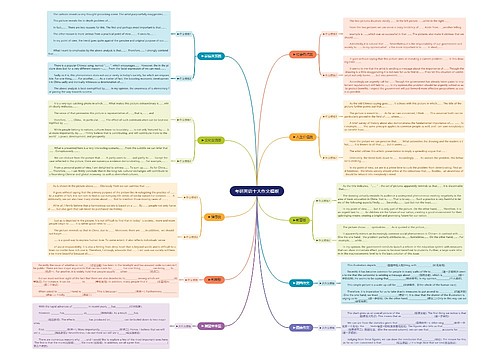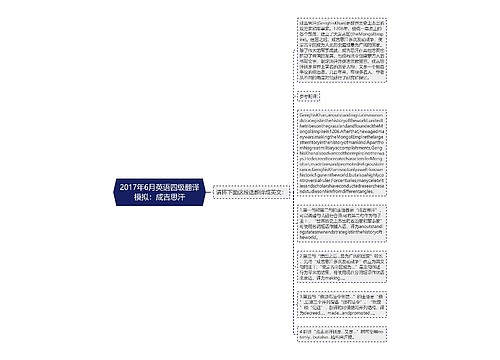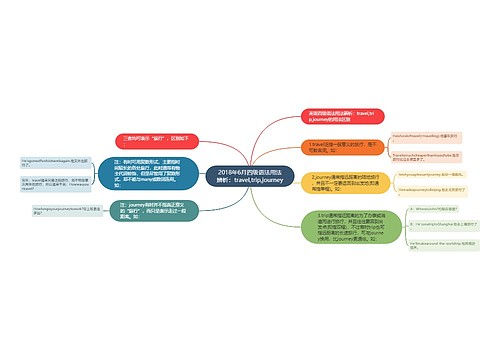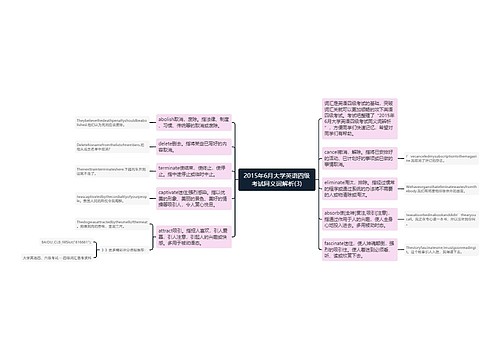2021年英语四级听力美文第84篇:Work and Play思维导图
轻涟低眉
2023-03-16

2021年英语四级听力美文第84篇:WorkandPlay
树图思维导图提供《2021年英语四级听力美文第84篇:Work and Play》在线思维导图免费制作,点击“编辑”按钮,可对《2021年英语四级听力美文第84篇:Work and Play》进行在线思维导图编辑,本思维导图属于思维导图模板主题,文件编号是:9af52f37aca076fa767cb563f181bce5
思维导图大纲
相关思维导图模版
904名中国成年人第三磨牙相关知识、态度、行为和病史的横断面调查思维导图
 U633687664
U633687664树图思维导图提供《904名中国成年人第三磨牙相关知识、态度、行为和病史的横断面调查》在线思维导图免费制作,点击“编辑”按钮,可对《904名中国成年人第三磨牙相关知识、态度、行为和病史的横断面调查》进行在线思维导图编辑,本思维导图属于思维导图模板主题,文件编号是:10b9a8a2dd2fb4593f8130ef16c320fc

销售经理半年规划思维导图
 U582121265
U582121265树图思维导图提供《销售经理半年规划》在线思维导图免费制作,点击“编辑”按钮,可对《销售经理半年规划》进行在线思维导图编辑,本思维导图属于思维导图模板主题,文件编号是:e614d6bcf03e9318109240a18697c5d1
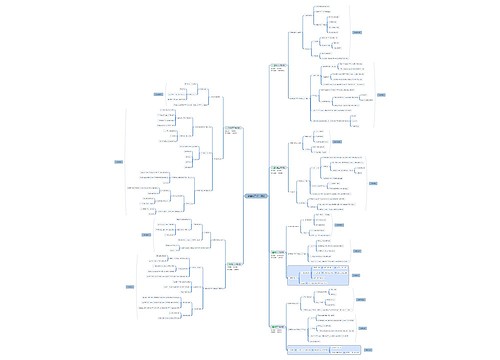
相似思维导图模版
思维导图模版推荐
2021年英语四级听力美文第85篇:The Story of Sissa思维导图
2023-03-16 20:57:51

2021年英语四级听力美文第86篇:Advice to a Young Man思维导图
2023-03-16 20:57:55
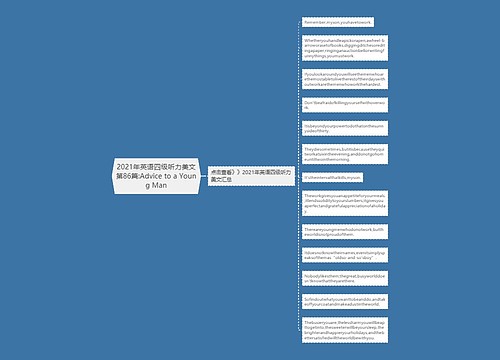
2021年英语四级听力美文第87篇:A Conversation between...思维导图
2023-03-16 20:58:00

2021年英语四级听力美文第83篇:Tourism思维导图
2023-03-16 20:57:42

2021年英语四级听力美文第82篇:Volunteers思维导图
2023-03-16 20:57:38

2021年英语四级听力美文第81篇:Salaries思维导图
2023-03-16 20:57:34


